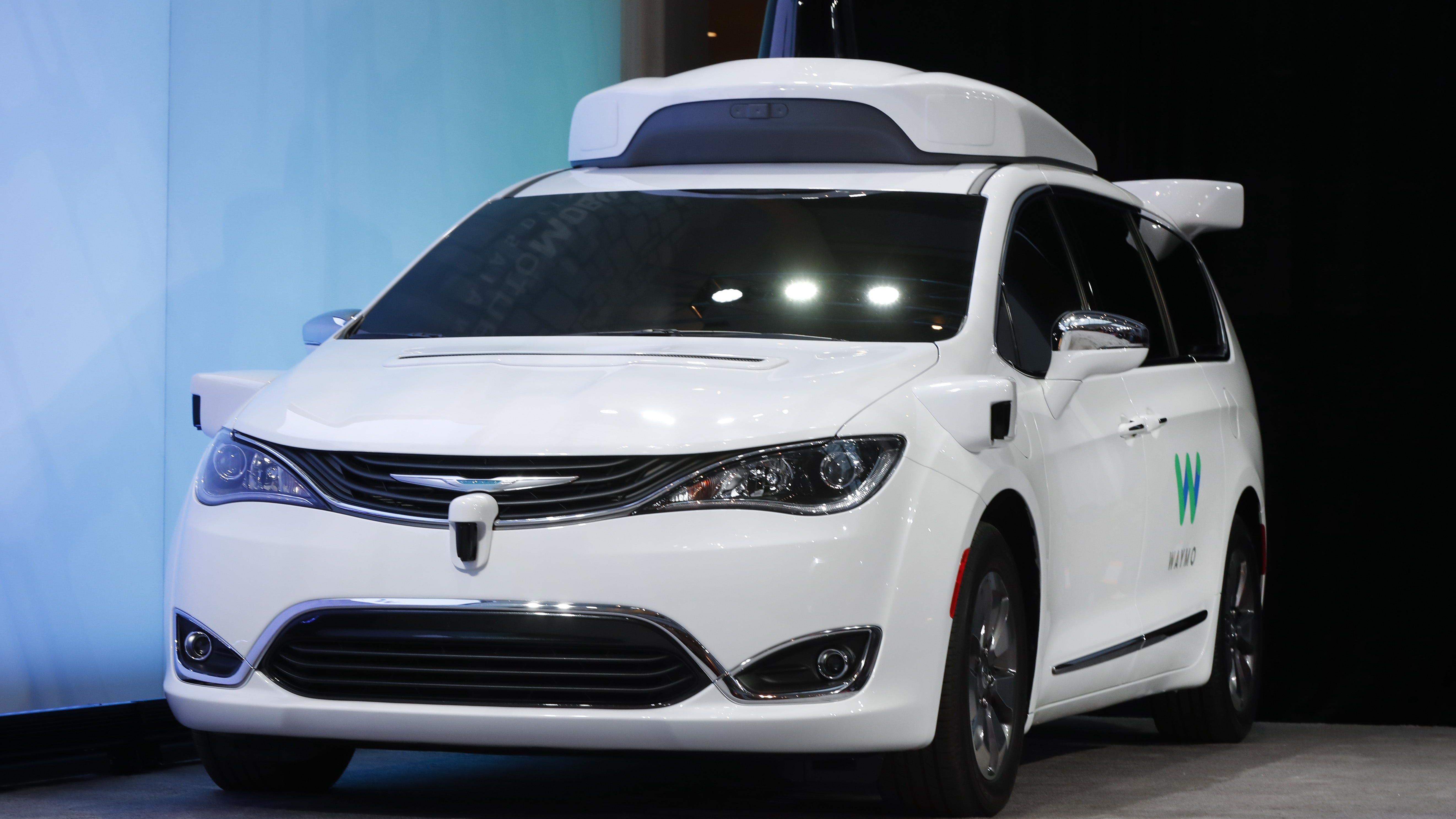FCA, Waymo explore robotic retail vehicle

Fiat Chrysler Automobiles NV is in talks with Google's Waymo to use the technology company's self-driving system in autonomous vehicles that Fiat Chrysler would sell.
Thursday's announcement came four months after Fiat Chrysler and Waymo announced the Silicon Valley company had ordered thousands more Chrysler Pacifica minivans to retrofit for self-driving test vehicles in 2019. The companies said Thursday that up to 62,000 minivans will be added to Waymo's fleet starting late this year.
The partnership and discussions are moves by both companies to maximize their strengths in an effort to put robotic vehicles on the road, according to industry experts.
Fiat Chrysler CEO Sergio Marchionne has championed partnerships in the self-driving realm, as opposed to the in-house development of autonomous hardware and software that some competitors favor.
“FCA is committed to bringing self-driving technology to our customers in a manner that is safe, efficient and realistic,” FCA CEO Sergio Marchionne said in a statement Thursday. “Strategic partnerships, such as the one we have with Waymo, will help to drive innovative technology to the forefront.”
FCA stock ended trading Thursday up 4.6 percent to $23.23 per share.
Waymo is seen as a leader in self-driving technology. The technology company is currently the only one with a fleet of fully autonomous vehicles on public roads without humans in the driver's seat. Onboard safety engineers in test vehicles have the ability to override the autonomous system, but moving the engineers out of the driver's seat sends a visual cue to the investment community and the public that Waymo was truly working on a vehicle that wouldn't need a human driver.
Some of those vehicles have been testing in Metro Detroit, in addition to other U.S. cities.
“Waymo's goal from day one has been to build the world’s most experienced (autonomous system) and give people access to self-driving technology that will make our roads safer,” John Krafcik, CEO of Waymo, said in a statement Thursday. "We're excited to deepen our relationship with FCA that will support the launch of our driverless service, and explore future products that support Waymo's mission.”
Those efforts put the partnership in a close race with rival General Motors Co. to be seen as a leader in self-driving technology. GM announced early Thursday that a prominent Japanese investment firm with an established network of technology and mobility partners plans to invest $2.25 billion in GM's self-driving arm.
GM plans to launch a commercial fleet of self-driving vehicles some time in 2019. Meantime, Ford Motor Co. has said its self-driving vehicle will be commercially available in 2021. The most recent update from the Blue Oval was its testing of vehicles in Miami to determine how best to make money in the self-driving effort.
Experts have been hesitant to point to a leader as more automakers get close to self-imposed launch dates.
"It's hard to judge where people are in a race where we can't see the end yet," said Rebecca Lindland, executive analyst with Kelley Blue Book, a California-based automotive research company. "FCA has to be good stewards of their money. This is a good use of funds at a stage when autonomous driving application is filled with uncertainty."
The potential partnership on a commercial application also helps FCA gain some ground. The automaker's role in the autonomous future was overshadowed by Waymo, which was developing its own hardware and software to retrofit Pacifica minivans.
"Successful research and development using the Pacifica can give FCA a huge push for name recognition and credibility for the autonomous future," said Ivan Drury, senior analyst with California-based analysis company Edmunds.
The three-row minivans are produced in Windsor and then shipped to a facility in Metro Detroit where they are outfitted with self-driving hardware and software by Waymo and Chrysler engineers.
The hybrid’s electric powertrain makes an ideal vehicle to accommodate Waymo’s self-driving technology, which includes high-powered computers and lidar, which uses lasers to “see” what’s around the car.
Waymo has tested its technology in 25 cities across the U.S., including Atlanta, San Francisco and Detroit. GM has been testing its Bolt autonomous fleet in San Francisco in conjunction with Cruise Automation, and Uber and Volvo have been running public tests in Pittsburgh.
ithibodeau@detroitnews.com